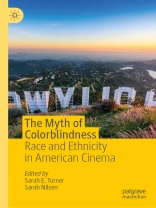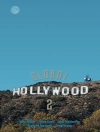This book explores representations of race and ethnicity in contemporary cinema and the ways in which these depictions all too often promulgate an important racial ideology: the myth of colorblindness. Colorblindness is a discursive framework employed by mainstream, neoliberal media to celebrate a multicultural society while simultaneously disregarding its systemic and institutionalized racism. This collection is unique in its examination of such films as
Ex Machina,
The Lone Ranger,
The Blind Side,
Zootopia,
The Fast and the Furious franchise, and
Dope, which celebrate the myth of colorblindness, yet perpetuate and entrench the racism and racial inequities that persist in contemporary society. While the #Oscars So White movement has been essential to bringing about structural changes to media industries and offers the opportunity for a wide diversity of voices to alter and transform the dominant, colorblind narratives continue to proliferate. As this book demonstrates, Hollywood still has a long way to go.
表中的内容
Introduction.- Part I: Colorblindness.- 2. Colorblindness: The Lens that Distorts.- 3. Why Hollywood Remains “So White” and a Note on How to Change It.- PART II: Colorblind Racism in Hollywood Films.- 4. Living in Zootopia: Tracking the Neoliberal Subject in a Colorblind World.- 5. The Paradox of Post-racialism: Black Hollywood’s Voice in Post-Racial Discourse.- 6. Colorblind Racism, The Trump Effect, and The Blind Side.- 7. Will Smith: A Global Brand of Blackness.- 8. Tricks of the (Colorblind) Trade: Hollywood’s Preservation of White Supremacy in the Age of Obama.- PART III: Intersections Between Race, Ethinicity, and Gender and Colorblind Racism in Hollywood.- 9. Zombies, Muslims, and Politics: Racism without Race in Contemporary America.- 10. Latinas/os in Hollywood: Contemporary Representations in Black and White.- 11. Tonto and The Lone Ranger: Nostalgic Kitsch or Post-Racial Backlash?.- 12. Cyborg Woman: Ex Machina and Racial Otherness.- 13. The End of the World, Hollywood, and the Endurance of Military Violence: Elysium and World War Z.
关于作者
Sarah E. Turner is a Senior Lecturer of English at the University of Vermont, USA. She is the co-editor of
The Colorblind Screen: Television in Post-Racial America (2014). Her work has appeared in a variety of critical texts including MELUS,
Diversity in Disney Films,
The Films of Stephen King, and
Networking Knowledge: Girls in Popular Culture.
Sarah Nilsen is an Associate Professor of Film and Television Studies at the University of Vermont, USA. She is the author of
Projecting America: Film and Cultural Diplomacy at the Brussels World’s Fair of 1958 (2011) and co-editor of
The Colorblind Screen: Television in Post-Racial America (2014). Other publications include essays on critical race theory, Disney studies, and Cold War culture.












